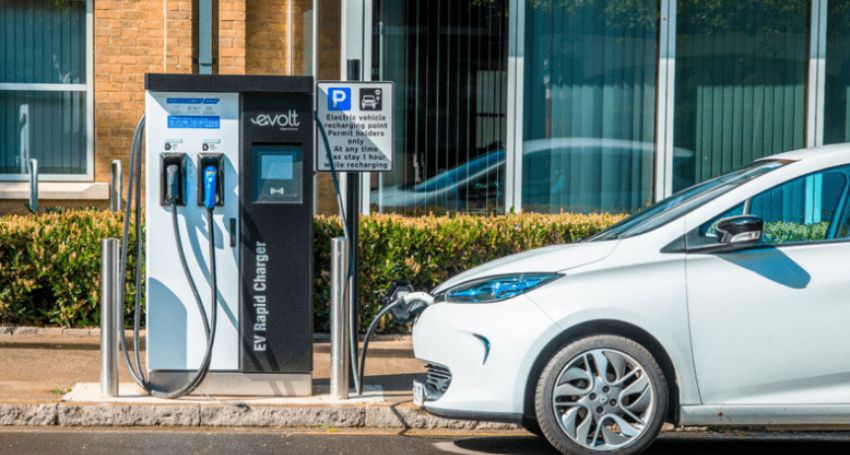
Electric vehicles (EVs) are revolutionizing transportation, offering a cleaner, more efficient alternative to conventional gasoline-powered vehicles. With advancements in technology and the increasing availability of different types of EVs, understanding their functionality and benefits has become essential. This article dives into the types of electric vehicles, exploring how they work, their advantages, and what sets them apart.
What Are Electric Vehicles and How Do They Work?
An electric vehicle (EV) is powered by electricity stored in a battery pack and converted into motion using one or more electric motors. Unlike conventional vehicles powered by an internal combustion engine, EVs rely on electricity, making them quieter, more energy-efficient, and environmentally friendly.
EVs function by drawing energy from the battery to drive the electric motor, which propels the vehicle. Some EVs, like hybrids, combine an electric motor with a gas engine for greater versatility. The efficiency and sustainability of EVs make them a popular choice in today’s automotive market.
Types of Electric Vehicles
Electric vehicles can be classified into four main categories:
- Battery Electric Vehicles (BEVs): Fully electric, using only batteries to power the vehicle.
- Plug-in Hybrid Electric Vehicles (PHEVs): Combine a battery-powered electric motor with a gasoline engine.
- Hybrid Electric Vehicles (HEVs): Use both an electric motor and a gasoline engine but cannot be plugged in.
- Fuel Cell Electric Vehicles (FCEVs): Generate electricity using hydrogen fuel cells, emitting only water vapor.
These vehicle types cater to various driving needs, offering a balance of range, efficiency, and environmental impact.
1. Battery Electric Vehicle (BEV)
Battery Electric Vehicles (BEVs) are entirely powered by electricity stored in a rechargeable battery pack. They produce zero emissions and require no gasoline, making them one of the cleanest vehicle options.
BEVs use an electric motor to drive the vehicle and rely on external charging infrastructure for energy replenishment. Models like the Tesla Model 3 and Nissan Leaf showcase the potential of BEVs, offering long ranges and advanced features.
2. Plug-in Hybrid Electric Vehicles (PHEVs)
Plug-in Hybrid Electric Vehicles (PHEVs) are versatile, combining a battery-powered electric motor with an internal combustion engine. They can run solely on electric power for short distances and switch to gasoline for extended trips.
This hybrid approach makes PHEVs ideal for drivers who want the benefits of electric driving without worrying about charging infrastructure for long journeys. However, their smaller battery capacity compared to BEVs limits their all-electric range.
3. Hybrid Electric Vehicles (HEVs)
Hybrid Electric Vehicles (HEVs) blend the benefits of electric and gasoline power. They use an electric motor to assist the engine during acceleration, improving fuel efficiency. Unlike PHEVs, HEVs cannot be plugged in; instead, they recharge their batteries through regenerative braking.
The Toyota Prius is a prime example of an HEV, offering improved fuel economy while reducing emissions compared to conventional vehicles.
4. Fuel Cell Electric Vehicles (FCEVs)
Fuel Cell Electric Vehicles (FCEVs) use hydrogen to generate electricity through a fuel cell. They emit only water vapor, making them a zero-emission option.
FCEVs offer quick refueling times and extended ranges, making them suitable for applications like heavy-duty vehicles. However, their adoption is limited due to the high cost of hydrogen production and the lack of refueling infrastructure.
Comparing the Different Types of EVs
BEVs are ideal for eco-conscious drivers who have access to charging stations, while PHEVs provide flexibility for those needing a gasoline backup. HEVs offer improved fuel efficiency without requiring external charging, and FCEVs represent a promising zero-emission technology for the future.
Each vehicle type caters to specific needs, and the choice depends on driving habits, access to charging infrastructure, and environmental goals.
Benefits of Electric Vehicles
Electric vehicles offer numerous benefits, including:
- Reduced Emissions: EVs significantly lower greenhouse gas emissions compared to traditional vehicles.
- Lower Costs: Electricity is cheaper than gasoline, and EVs have fewer moving parts, reducing maintenance expenses.
- Improved Performance: Electric motors deliver instant torque, enhancing acceleration and driving experience.
These advantages make EVs an appealing choice for drivers seeking sustainability and cost efficiency.
Role of Batteries in Electric Vehicles
Batteries are the core component of EVs, storing energy to power the electric motor. Advances in battery technology, such as lithium-ion batteries, have improved energy density and reduced charging times, making EVs more practical for everyday use.
Battery packs also influence the range, weight, and cost of EVs, making them a key area of innovation in the automotive industry.
The Future of Electric Vehicles
The future of EVs is driven by advancements in technology, expanding charging infrastructure, and increased government support. Emerging trends include:
- Solid-State Batteries: Offering higher energy density and faster charging.
- Diverse EV Models: Including micromobility devices, electric buses, and heavy-duty vehicles.
- Global Adoption: Policies promoting EVs to combat climate change and reduce dependency on fossil fuels.
As new vehicles continue to enter the market, EVs are becoming more accessible and practical for a broader range of drivers.
Conclusion
Electric vehicles are revolutionizing transportation by offering innovative, efficient, and eco-friendly alternatives to traditional cars. From the zero-emission operation of BEVs to the hybrid efficiency of PHEVs and HEVs, each type of EV is designed to cater to diverse driving needs. With advancements in technology and expanding charging infrastructure, there’s never been a better time to explore the benefits of driving electric.
Looking to learn more or take the next step? Contact us for the latest insights on EV technology, expert reviews, and guidance to help you choose the right electric vehicle for your needs. Start your journey toward sustainable transportation today!



